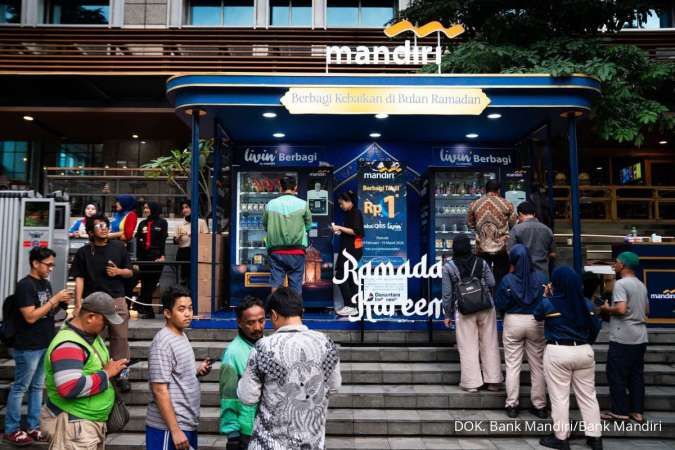KONTAN.CO.ID - WASHINGTON. U.S. producer prices increased by the most in eight months in January amid a surge in the cost of hospital outpatient care and goods such as food and motor vehicles, another sign that high inflation could persist through much of this year. The report from the Labor Department on Tuesday followed on the heels of news last week of a strong rise in consumer prices in January, with the annual inflation rate posting its largest increase in 40 years. "The combination of stubborn supply disruptions and elevated energy prices will prevent producer prices from reverting to more normal patterns until later this year," said Mahir Rasheed, an economist at Oxford Economics in New York.
The producer price index for final demand jumped 1.0% last month, the biggest advance since May, after climbing 0.4% in December. The PPI was boosted by a 0.7% increase in services, which followed a similar gain in December. Read Also
: Vietnam Eyes Full Reopening to Tourists From Next Month Services were driven by a 1.6% rise in the cost of hospital outpatient care. There were also increases in wholesale retailing for machinery, vehicles, apparel, jewelry as well as footwear. The cost of hotel and motel accommodation rose as did freight transportation by trucks. Portfolio management fees jumped 1.9%. But margins for fuels and lubricants retailing fell 9.7%. Wholesale goods prices rebounded 1.3% after dipping 0.1% in December. A 0.8% rise in the prices of goods less foods and energy accounted for more than 40% of the broad increase in the costs of goods. Wholesale motor vehicle prices rose 0.7%. Food prices advanced 1.6%, while energy products increased 2.5%. But prices for iron and steel scrap fell 10.7%. In the 12 months through January, the PPI increased 9.7%. That followed a 9.8% surge in December. Year-on-year PPI is slowing as last year's large increases drop out of the calculation. Economists polled by Reuters had forecast the PPI gaining 0.5% on month and advancing 9.1% year-on-year. Read Also
: Oil Eases on Profit Taking, Russia-Ukraine Conflict Remains Key Focus STRONG UNDERLYING INFLATION Excluding the volatile food, energy and trade services components, producer prices rose 0.9% in January. That was the largest increase in the so-called core PPI in a year and followed a 0.4% gain in December. In the 12 months through January, the core PPI increased 6.9% after rising 7.0% in December. Last week's hot consumer inflation readings led financial markets to price in a better-than-even chance of a 50 basis points interest rate hike from the Federal Reserve next month. Inflation is running well above the U.S. central bank's 2% target. Economists are expecting as many as seven rate hikes this year. Inflation pressures are also coming from strong wage gains amid tightening labor market conditions.
Read Also: Intel Nears $6 Billion Deal to Buy Tower Semiconductor "While risks to inflation remain to the upside and are of great concern to the Fed, we continue to believe inflation should moderate in coming months," said Sam Bullard, a senior economist at Wells Fargo in Charlotte, North Carolina. "Even so, inflation will continue to run well ahead of pre-pandemic levels and therefore remain a key challenge for policymakers, businesses, and consumers alike." A shift in spending to goods from services during the COVID-19 pandemic and trillions of dollars in government pandemic relief boosted demand, which has outpaced supply, igniting inflation. An acute shortage of workers on factory floors and other places along the supply chain are making it difficult to get products to markets. While supply bottlenecks had shown signs of easing towards the end of 2021, that progress stalled as infections, driven by the Omicron variant, raged across the globe. Though cases are falling significantly in the United States, they are surging in Asia, a major source of raw materials for U.S. factories.

